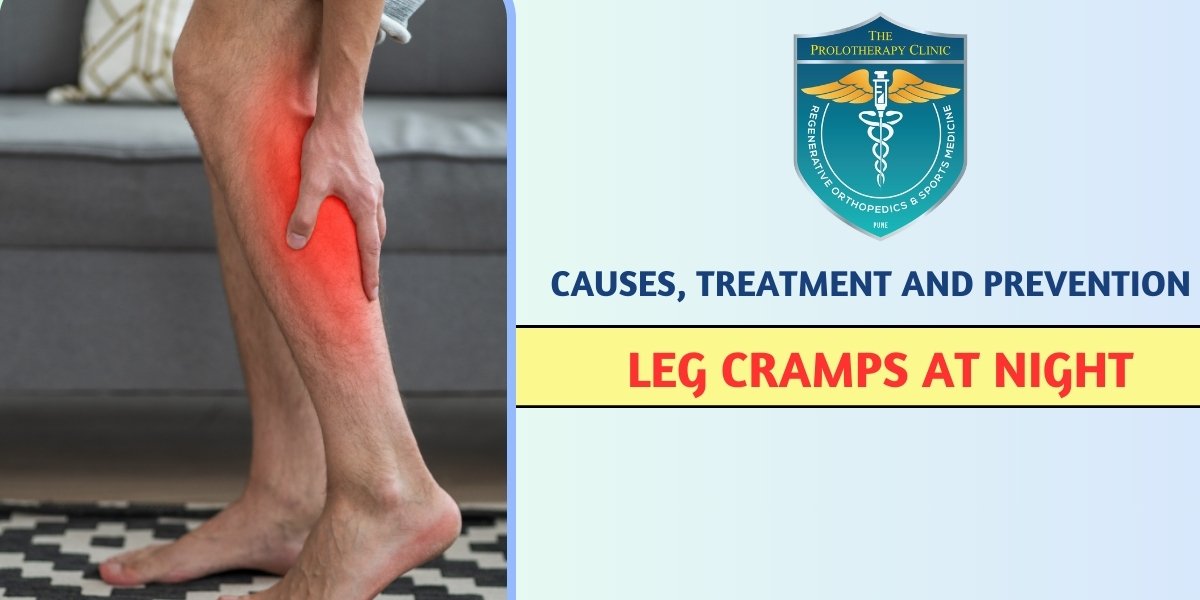Have you ever woken up suddenly in the middle of the night because of a sharp, intense pain in your leg? If so, you’re not alone. Nighttime leg cramps are a common, albeit disruptive, occurrence that can leave you puzzled and uncomfortable. In this blog, we will explore the causes behind these cramps, effective treatment options, and practical methods for preventing them from interrupting your sleep.
Causes of Nighttime Leg Cramps
Nighttime leg cramps, also known as nocturnal leg cramps, can be triggered by various factors. Some common causes include:
- Muscle Fatigue – Overexertion of the leg muscles during the day can lead to cramping at night.
-
Dehydration – Insufficient hydration can cause electrolyte imbalances, contributing to muscle cramps.
-
Mineral Deficiencies – Low levels of minerals such as potassium, magnesium, and calcium can result in muscle cramps.
-
Poor Circulation – Reduced blood flow to the legs while lying down can lead to cramping.
-
Nerve Compression – Conditions like peripheral neuropathy can increase the likelihood of experiencing leg cramps.
Treatment Options for Nighttime Leg Cramps
When the excruciating pain of a leg cramp strikes in the dead of night, swift relief is essential. Here are some effective treatment options to alleviate the discomfort:
-
Stretching – Gently stretching the affected muscle can help relax it and relieve the cramp.
-
Massage – Massaging the cramped muscle can promote blood flow and ease the tension.
-
Warm Compress – Applying a warm compress to the cramped area can soothe the muscle and ease the pain.
-
Hydration – Drinking water or a sports drink containing electrolytes can help rebalance the body’s mineral levels.
-
Medication – In severe cases, over-the-counter pain relievers or muscle relaxants may be recommended by a healthcare provider.
Preventing Nighttime Leg Cramps
Prevention is often the best approach when it comes to managing nighttime leg cramps. Here are some practical tips to help prevent these unwelcome disruptions to your sleep:
- Stay Hydrated – Drink an adequate amount of water throughout the day to prevent dehydration.
-
Maintain Proper Nutrition – Ensure your diet includes foods rich in potassium, magnesium, and calcium to support muscle function.
-
Regular Exercise – Engage in regular stretching exercises to improve muscle flexibility and reduce the risk of cramps.
-
Address Underlying Conditions – If you have conditions like diabetes or peripheral artery disease, seek proper management to reduce the likelihood of leg cramps.
-
Improve Sleep Environment – Make sure your sleeping environment is conducive to relaxation, with proper mattress support and comfortable temperature.
By understanding the causes, implementing effective treatments, and adopting preventive measures, you can take control of nighttime leg cramps and enjoy a peaceful night’s sleep. Remember, consistency is key in managing and preventing these uncomfortable muscle spasms.
FAQs On Leg Cramps
What are the main causes of nighttime leg cramps?
Muscle fatigue, dehydration, mineral deficiencies, poor circulation, and nerve compression can cause nighttime leg cramps.
How can nighttime leg cramps be treated?
Effective treatment options include stretching the affected muscle, gentle massage, applying a warm compress, staying hydrated, and, in severe cases, using over-the-counter pain relievers or muscle relaxants.
What are some practical tips to prevent nighttime leg cramps?
Preventive measures include staying hydrated, maintaining a proper nutritional balance, engaging in regular stretching exercises, addressing underlying health conditions, and ensuring a comfortable sleep environment.




